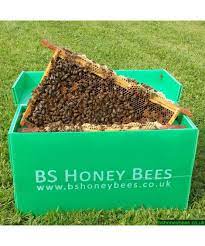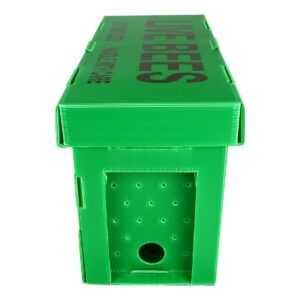Exciting News: Bee Connection Assistance Now Available at Hobee!
Looking for bees? We’re here to help! At HOBEE UK, we don’t sell bees directly, but we connect you with local beekeepers in London who do. Simply email us at sales@hobee.co.uk, let us know how many colonies you need, and we’ll check availability. If bees are available, we’ll share the beekeeper’s contact details with you. At the moment we have four experienced beekeepers in our hub.
Please note, all purchases are collection-only, and we kindly leave pricing and after-sales inquiries to you. Our role is to connect you with experienced beekeepers, helping you kickstart your beekeeping journey with ease. From there, the rest is in your capable hands!
Last year, we were proud to successfully connect numerous beekeepers with one another, fostering a thriving community of collaboration and support. If you are lucky you might even get a free swarm as our beekeepers tend to give extra swarms away for free.
Thank you for choosing HOBEE as your partner in beekeeping bliss. Let’s create a world abuzz with joy and sustainability together!




Bees and the Law
Honey bees have long presented legal challenges, stemming from their dual nature as wild creatures and creatures managed by beekeepers. Recent legislation has brought them into various legal frameworks due to their production of honey. These notes aim to introduce beekeepers to legal areas relevant to their activities, with a strong recommendation to seek professional advice promptly if needed.
Bees and Neighbours: Landowners have the right to reasonable use of their property, but cannot unreasonably interfere with their neighbours’ enjoyment. The Environment Act 1990 identifies keeping animals in a manner prejudicial to health or causing a nuisance as a statutory nuisance, allowing complaints to local authorities or Magistrate’s Courts, which can issue abatement orders.
Ownership of Swarms: If bee swarms settle on someone else’s land, ownership transfers to the landowner. Beekeepers have no legal right to enter another’s land to retrieve a swarm without permission. If permission is granted, ownership transfers to the beekeeper.
Insurance: While not mandatory, beekeepers are strongly advised to have Public Liability Insurance.
Bee Diseases and Pest Control: Owners or caretakers of hives must report known or suspected notifiable diseases or pests to the Secretary of State, typically by informing the local bee inspector. Currently, notifiable bee diseases include American Foul Brood and European Foul Brood, along with sightings of the Asian Hornet.
Feeding the bees: Typically, spring and early summer are optimal for feeding bees in the UK. As bees emerge from winter dormancy during this period, they require nourishment to regain strength and kickstart hive activity.